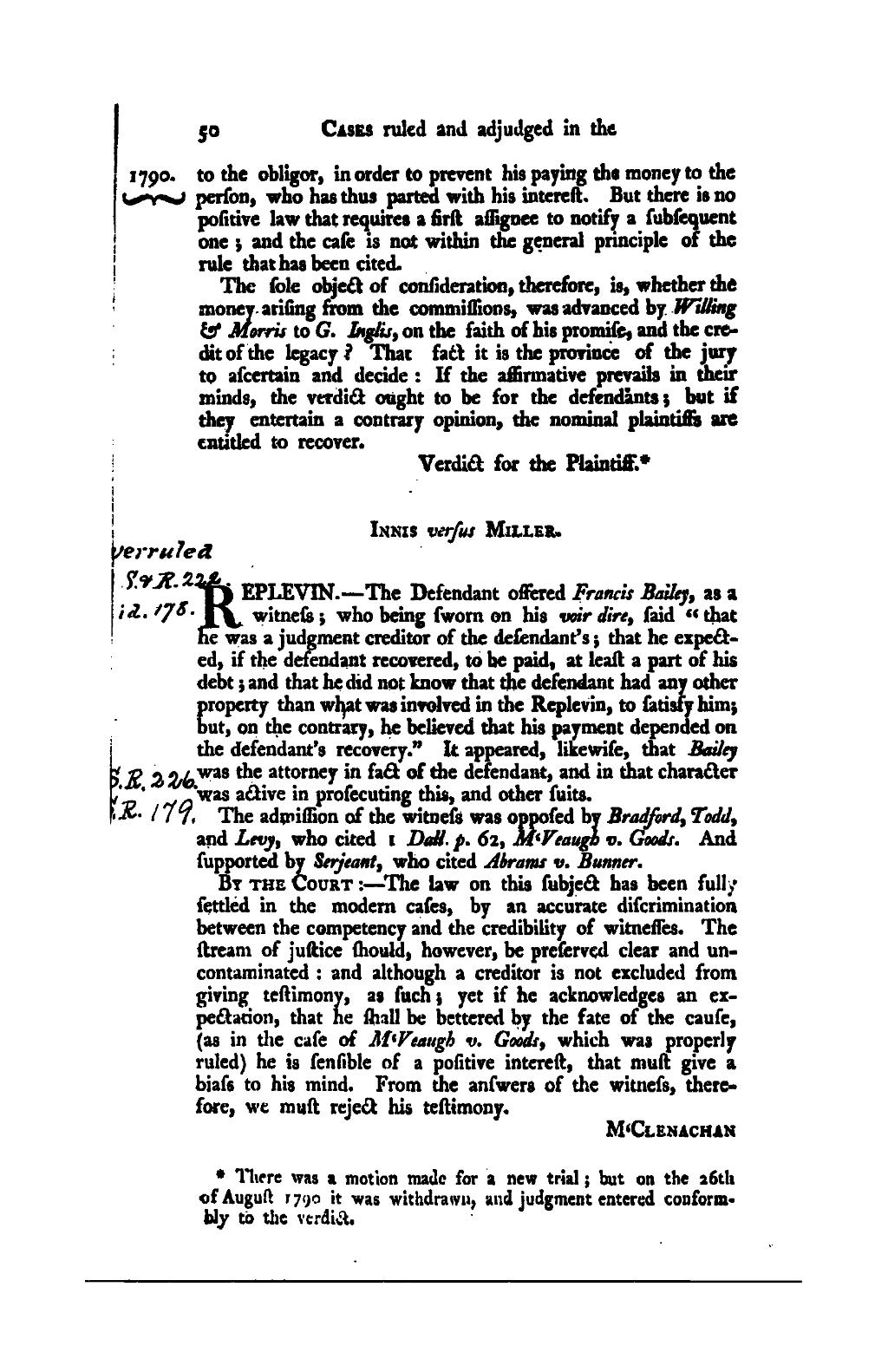1790.
to the obligor, in order to prevent his paying the money to the person, who has thus parted with his interest. But there is no positive law that requires a first assignee to notify a subsequent one; and the case is not within the general principle of the rule that has been cited.
The sole object of consideration, therefore, is, whether the money arising from the commissions, was advanced by Willing & Morris to G. Inglis, on the faith of his promise, and the credit of the legacy? That fact it is the province of the jury to ascertain and decide: If the affirmative prevails in their minds, the verdict ought to be for the defendants; but if they entertain a contrary opinion, the nominal plaintiffs are entitled to recover.
Verdict for the Plaintiff.[1]
Innis versus Miller.
Replevin.—The Defendant offered Francis Bailey, as a witness; who being sworn on his voir dire, said “that he was a judgment creditor of the defendant’s; that he expected, if the defendant recovered, to be paid, at least a part of his debt; and that he did not know that the defendant had any other property than what was involved in the Replevin, to satisfy him; but, on the contrary, he believed that his payment depended on the defendant’s recovery.” It appeared, likewise, that Bailey was the attorney in fact of the defendant, and in that character was active in prosecuting this, and other suits.
The admission of the witness was opposed by Bradford, Todd, and Levy, who cited 1 Dall. p. 62, MᶜVeaugh v. Goods. And supported by Serjeant, who cited Abrams v. Bunner.
By The Court:—The law on this subject has been fully settled in the modern cases, by an accurate discrimination between the competency and the credibility of witnesses. The stream of justice should, however, be preserved clear and uncontaminated: and although a creditor is not excluded from giving testimony, as such; yet if he acknowledges an expectation, that he shall be bettered by the fate of the cause, (as in the case of MᶜVeaugh v. Goods, which was properly ruled) he is sensible of a positive interest, that must give a biass to his mind. From the answers of the witness, therefore, we must reject his testimony.
MᶜClenachan
- ↑ There was a motion made for a new trial; but on the 26th of August 1790 it was withdrawn, and judgment entered conformbly to the verdict.

